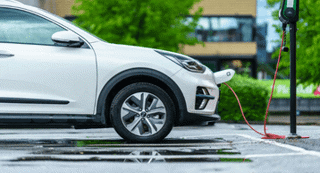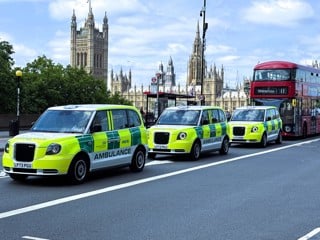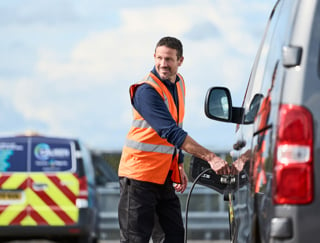Registrations of ultra-low emission vehicles (ULEVs) that receive the Government’s plug-in car grant are set to double this year.
In the first eight months of 2014, 5,710 cars received the grant, which is 59% more than the 3,584 registered in the whole of 2013, according to the Society of Motor Manufacturers and Traders (SMMT).
The number of cars to receive the grant – which is up to £5,000 of a vehicle’s purchase price – so far this year is already two-and-a-half times (153%) the full-year performance of 2012 (2,254 vehicles).
It is also expected that 2014 registrations will exceed the combined 2012 and 2013 totals of 5,838 vehicles by the end of September.
Alex Michaelides, from the Go Ultra Low campaign, said: “It is hugely encouraging that thousands of motorists have already chosen to go ultra low.
“Overtaking 2013’s total at this point of the year is an impressive milestone and we expect to be double what was achieved in 2013 by the end of this year.”
Go Ultra Low is a partnership between the UK automotive industry and Government which aims to debunk common myths and misconceptions that can deter motorists and fleets from switching to electric or hybrid cars.
It is backed by many of the key players in the UK automotive industry – BMW, Nissan, Renault, Toyota and Vauxhall – and supported by the SMMT and the Office for Low Emission Vehicles (OLEV).
ULEVs are defined as having tailpipe CO2 emissions of 75g/km or below. While pure-electric vehicles emit zero emissions, most plug-in hybrids and range-extended electric vehicles emit between 10g/km and 50g/km.
While an increasing number of fleets are running ULEVs, many still face barriers to their adoption.
Almost half (47.8%) of the respondents to a Fleet News poll said that they don’t believe there is a plug-in vehicle that can currently meet their needs.
Michaelides said: “There are now more than 20 ultra-low emission cars to choose from.
“All of the top 10 best-selling car manufacturers in the UK will have ULEV options this year, with a number of ULEVs available in the majority of vehicle segments. There are also a number of new vans coming to market in the next year in a range of sizes and powertrains.”
For around one-in-five respondents (17.4%), it is the infrastructure for recharging vehicles which remains a stumbling block.
However, 5,000 public charge points have already been rolled out across the UK and by the end of this year the majority of motorway service stations will have a rapid charger. By March 2015 there will be a network of 500 rapid chargers across the country.
Last week a consortium of EV manufacturers, including Nissan, BMW, Volkswagen and Renault, committed to developing a network of rapid charge points.
The network will provide EV-friendly links to major ports and cities including Stranraer, Liverpool, Holyhead, Birmingham, Felixstowe, Leeds and Kingston upon Hull, as well as five international airports.
Respondents to the poll also highlighted issues around the upfront cost of vehicles (13%) and residual values (8.7%).
Another concern was the tax treatment of ULEVs. One respondent said the ongoing lack of clarity on the tax position of electric as a fuel type by HMRC and hybrids being classified by their prevailing petrol/diesel engine classification were issues.
He added: “Until an advisory fuel rate (AFR) can be provided to cover electric vehicles and provide a more appropriate recognition of the fuel efficiency of hybrids, businesses that pay for mileage through expense claims have no way of establishing the true wholelife cost of the vehicle and conversely risk on hybrids incentivising mileage by
their drivers.”





















Login to comment
Comments
No comments have been made yet.